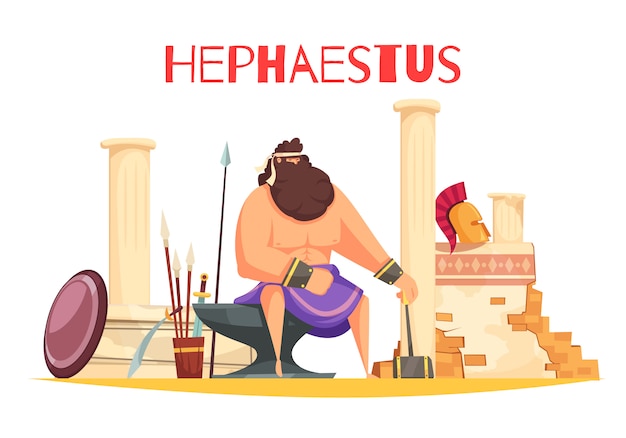Hermes – Fascinating Facts about the Ancient Greek God

Hermes, the Greek god, is known as the messenger.
The name Hermes means son of Zeus and Maia in Greek mythology.
Hermes is often depicted with winged sandals and a caduceus.
Legend says that Hermes invented the lyre, a musical instrument, which he gave to Apollo.
Hermes is the patron god of travelers, shepherds, and thieves.
Hermes is also associated with commerce and trade.
In ancient Greece, Hermes was worshiped as a protector of athletes and sportsmanship.
Hermes is said to have the ability to move swiftly between the mortal and divine worlds.
Hermes’ Roman equivalent is the god Mercury.
According to myth, Hermes was known for his quick wit and cleverness.
Hermes played a major role in many Greek myths, including assisting Perseus in slaying Medusa.
The Hermeneutic Circle, a concept in philosophy, is named after Hermes due to his role as messenger between worlds.
Many major cities in ancient Greece had temples dedicated to Hermes.
Hermes is one of the twelve Olympian gods in Greek mythology.
Hermes is often depicted with a wide-brimmed hat, which symbolizes his role as a traveler and guide.
In some myths, Hermes is credited with the creation of fire.
The god Hermaphroditus was believed to be the child of Hermes and Aphrodite.
Hermes is sometimes depicted as a young, energetic god with a mischievous smile.
In astrology, the planet Mercury is associated with communication and speed, representing the traits of Hermes.
Hermes – Fascinating Facts about the Ancient Greek God part 2
Hermes was known for his agility and was often depicted in motion, ready to deliver a message.
In ancient Greece, Hermes was seen as a protector of travelers, guiding them safely to their destinations.
Hermes was believed to have the power to bring dreams to humans while they slept.
In some ancient myths, Hermes is credited with inventing the alphabet and teaching it to humans.
Hermes was known for his ability to negotiate and mediate conflicts between gods and mortals.
In some stories, Hermes is depicted as a trickster god, using his cunning to outsmart others.
Hermes was often invoked by merchants and traders for luck and success in their business ventures.
Hermes was believed to have the power to bless or curse those he interacted with.
In some myths, Hermes is depicted as a guide for souls in the afterlife, leading them to the underworld.
Hermes is associated with eloquence and skill in persuasion.
In ancient Greece, Hermes was seen as a protector of boundaries, both physical and metaphorical.
Hermes is often portrayed as a youthful and lively god, symbolizing the vitality and energy of life.
Hermes’ role as a messenger god made him a popular deity to worship for those seeking guidance and divine intervention.
In ancient Greek art, Hermes is often depicted with a staff, which represents his role as a messenger.
The hippopotamus was considered sacred to Hermes because of its associations with water and fertility.
Hermes was known for his affection for animals, particularly birds and turtles.
Hermes’ symbols include the winged sandals, the caduceus, and the tortoise.
In Greek mythology, Hermes is credited with creating the game of dice.
Hermes was considered the god of thieves and mischief, often aiding those who found themselves in trouble.
Hermes was seen as the protector of roadways, ensuring safe travel for those out on the roads.
In some myths, Hermes is depicted as the father of Pan, the half-goat god of nature and fertility.
Hermes’ role as the messenger of the gods made him the go-to god for prayers and petitions.
In ancient Greece, Hermes was often associated with luck and good fortune.
Hermes’ quick thinking and resourcefulness made him a favorite among the gods, often called upon for help in difficult situations.
In some stories, Hermes is depicted as a gender-fluid god, capable of changing his appearance at will.
Hermes’ role as a messenger god made him a guardian of information, ensuring that messages were delivered accurately and efficiently.

